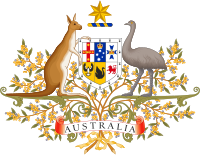
Photo from wikipedia
The metabolic effects of sugary drinks have been extensively studied, whereas the effects on psychological processes have received relatively limited attention. Several studies have found that high-sugar diets can produce… Click to show full abstract
The metabolic effects of sugary drinks have been extensively studied, whereas the effects on psychological processes have received relatively limited attention. Several studies have found that high-sugar diets can produce impaired performance by rats on tests assessing spatial learning and memory. In contrast, despite claims that weakened inhibitory control underlies many sugar-induced deficits, evidence supporting this proposal has been limited. The aim of the present study was to assess the impact of high-sugar diets on response inhibition, as measured by rats' performance on a differential reinforcement of low rates schedule (DRL) in Experiments 1 and 2 and on a Pavlovian discrimination reversal task in Experiment 3. In all three experiments a 30-day diet stage, in which Sugar groups were given unrestricted access to 10% sucrose solution and Control groups had access to water only, was followed by behavioural tests. In Experiment 1 the Sugar group performed poorly on a spatial memory task, but no difference was detected between the performances of the two groups in the DRL test. In Experiment 2 longer DRL training was given and post-diet performance was assessed both before and after access to sugar was withdrawn. Null results were obtained under both conditions. In Experiment 3 rats' performance on a discrimination learned prior to the diet intervention was not affected by the high-sugar diet, but neither was performance once the discrimination was reversed. The implications of these results for understanding of sugar-induced psychological deficits are discussed.
Journal Title: Appetite
Year Published: 2021
Link to full text (if available)
Share on Social Media: Sign Up to like & get
recommendations!